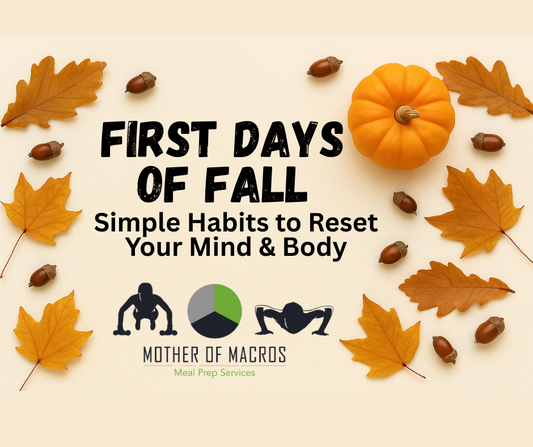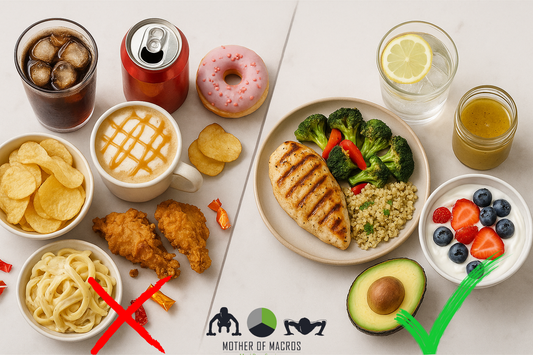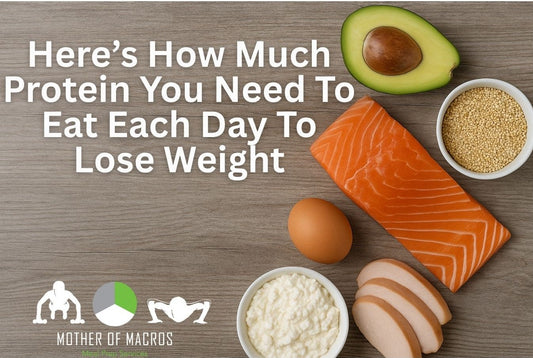Do you have a case of SAD? (Standard American Diet). It’s everywhere, and more than likely you’ve fallen a victim to what could be the reason you aren’t seeing results in your weight loss journey, feeling low energy throughout the day, bloated, groggy, and even contributing to disease within the body.
The Standard American Diet has been a well-known cause of inflammation as we are consuming less whole foods in our diet and more processed foods which are the ultimate triggers of inflammation. The rushed trends and fad diets ultimately lead to falling back on the SAD, or maybe you’re even including the SAD in your weight loss diet without even knowing it.

We can assume this is how most people start their day:
Morning coffee with heavily processed creamer, fake sugar, and perhaps a bagel with cream cheese, cereal, pancakes, or other processed and other hidden refined foods in each of these items.
For lunch. most people go to work and pack a sandwich with refined grains, processed meat, processed cheese, and low-quality complex ingredients. Or, they opt to a quick and convenient route and grab fast food close by, gas station snacks, and other packaged “foods” to sustain them until dinner.
Dinner is often a carb-heavy meal with less than adequate amounts of vegetables and low to moderate protein. Examples may include a pasta dish, bread, refined grains, heavily processed cheese, and other highly inflammatory foods that are prepared in hydrogenated oils such as canola oil.
Does this sound familiar? Trust us, You’re not alone! We’ve all been there.
The education around a proper nutritional diet to follow has been very few and far between from the moment we attend school to going into adulthood. So we naturally opt for the most simple, quick, and convenient ways to eat to get us through the day.
So what is inflammation anyway?

Inflammation is a natural response to the immune system intended to fight toxic compounds and damaged cells. These heavily processed foods essentially trigger white blood cells as protective factors in healing, but when there is a miscommunication between injury and toxic foods, our bodies still rush to target our bodies to try to protect them. Over time with this process of promoting oxidative stress on the body happening repetitively is a surefire way to encounter inflammation, even chronic inflammation.
Chronic inflammation is what starts the process of diseases such as heart disease, cancer, arthritis, diabetes, and obesity. Think about it this way... Heart disease is quite literally just inflammation of the arteries and so on.
And while genetics and environmental toxins can play a role in this process, we can note that 80% of diseases are caused by lifestyle choices. Meaning the foods we eat, how active we are, and how we treat our bodies.
So ultimately, our food intake can either be helping us heal or encouraging inflammation as well as fat storage.
Here are some small lifestyle changes you can make today to reduce inflammation and begin a journey to sustainable health:
- Limit heavily processed foods and oils. (Simple starches, white flour, pasta, white bread, refined foods, unhealthy saturated fats)
- Get enough high-quality sleep
- Drink enough water for your body weight to help aid in flushing toxins.
- Stop smoking
- Eat more whole foods
Now that we know a little about the simple fact of processed and refined foods may be the main cause of inflammation, here are some foods that are anti-inflammatory and can help reduce whole-body inflammation such as:
- Fruits
- Vegetables
- Beans
- Lean high-quality meats (no added hormones, antibiotics, etc)
- Whole grains
- Fish
- Herbs & Spices
- Healthy Fats (Avocados, nuts, seeds)

Eating a diet that is 80% whole foods with 20% flexibility in the “processed foods” category, can dramatically decrease inflammation and aid in weight loss and healthy living as well as consuming enough water, exercise, and a sense of community to reduce stress and advocate for your accountability.
-
-
-
-
-
Stay connected with our bi-weekly blogs and social media channels to learn more about ways you can reduce inflammation, track your macronutrients, start a healthy diet, and live a sustainable lifestyle by taking charge of your own health and learning how your specific body operates.
You can always send us an email with any questions you may have and our nutrition coaches will be more than happy to help guide you in the right direction and support you on your journey.
Mother of Macros is not a medical professional nor is it medical advice. Please always consult with your doctor.




